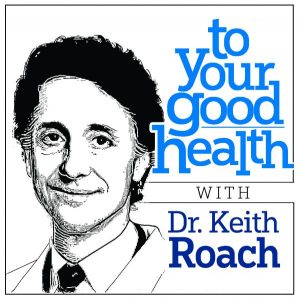GOOD HEALTH: Length of hormone treatment depends on the individual
By Dr. Keith Roach — August 7, 2022 DEAR DR. ROACH: I am a 60-year-old woman at the end of a five-year regimen of hormone therapy. My doctor has advised me to eventually stop the use of estrogen and progesterone by this summer, as she says women have an advanced risk of breast cancer at this age. Another friend a few years younger than me was told by her doctor that she could continue with hormone-replacement therapy until she is 70.
DEAR DR. ROACH: I am a 60-year-old woman at the end of a five-year regimen of hormone therapy. My doctor has advised me to eventually stop the use of estrogen and progesterone by this summer, as she says women have an advanced risk of breast cancer at this age. Another friend a few years younger than me was told by her doctor that she could continue with hormone-replacement therapy until she is 70.
Which doctor is correct? I am experiencing constant hot flashes again and am able to snatch only little bits of sleep each night, along with all of the other issues that come with the loss of estrogen (inability to regulate temperature, hair falling out, flaccid skin, vaginal dryness, etc.). My other question is, am I able to use other herbal compounds, specifically saw palmetto and/or St. John’s wort, without any risk of breast cancer? Or are these and other estrogen-mimicking compounds also a contributor to breast cancer? — R.N.
ANSWER: There is no one-size-fits-all answer to the first question about how long to continue hormone treatment for symptoms of menopause. I disagree with any absolute rule, such as stopping at five years or waiting until 70, because any woman may place a different value on her well-being, and a woman’s individual risk for breast cancer also needs to be considered. You haven’t told me about any particular risk, but my answer would be very different for a woman with average risk compared with a woman with increased risk due to family history, for example.
About 40 percent of women will have symptomatic hot flashes until age 65, and continuing estrogen is reasonable in women who are willing to accept the increase in risk. The risk is not just breast cancer. Women taking combined estrogens and progestins have a small increase in the risk of heart disease, stroke and pulmonary embolism (blood clot to the lung), but a decreased risk of colon cancer and hip fracture. That all sounds scary, but the increase in risk of any of these is less than 0.5 percent. Overall, women on combined hormones were slightly LESS likely to die than those who were not. Many women choose to continue taking their hormones when their symptoms are significantly affecting their quality of life. I feel very strongly that it’s the physician’s job to advise so a woman can make the best decision for herself.
Saw palmetto is not commonly used for menopausal symptoms (it’s used very frequently by men with prostate issues), and there is inconsistent evidence on its contribution for breast cancer. Similarly, there is no consensus on the risk of St. John’s wort for breast cancer, and only limited evidence that it helps menopausal symptoms. St. John’s wort can interact with many medicines, so it’s wise to discuss its use with a pharmacist if you are taking other medication.
Many women ask about phytoestrogens (such as in soy protein or red clover) and other herbs with estrogenic activity (such as black cohosh). There is a theoretical risk, and although there are some studies suggesting they may be safe, many experts advise against these for women at high risk. That group would include women with a history of an estrogen-sensitive tumor.
Dr. Roach regrets that he is unable to answer individual questions, but will incorporate them in the column whenever possible. Readers may email questions to ToYourGoodHealth@med.cornell.edu.
© 2022 North America Synd., Inc.
All Rights Reserved
Alarming rate of false positives plagues lung cancer screening



